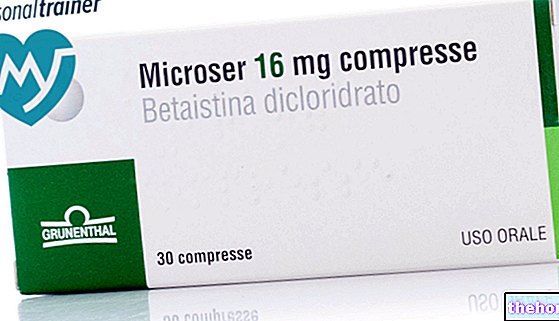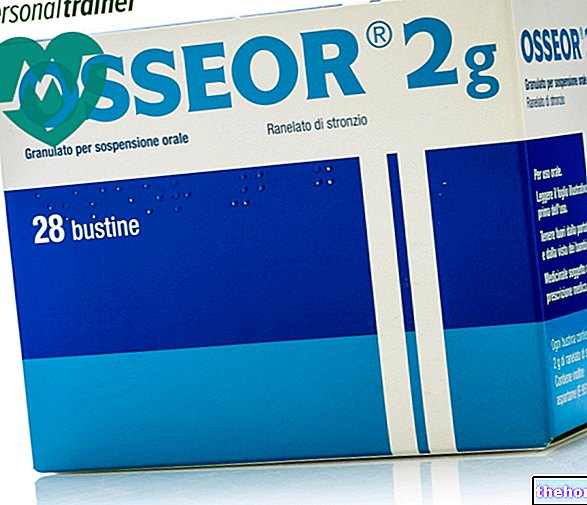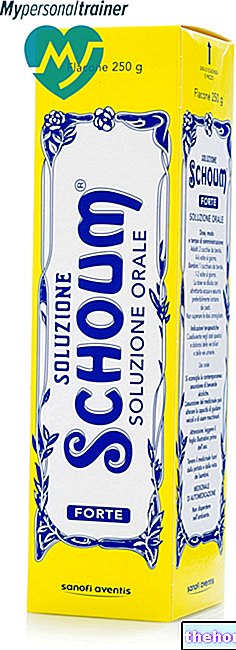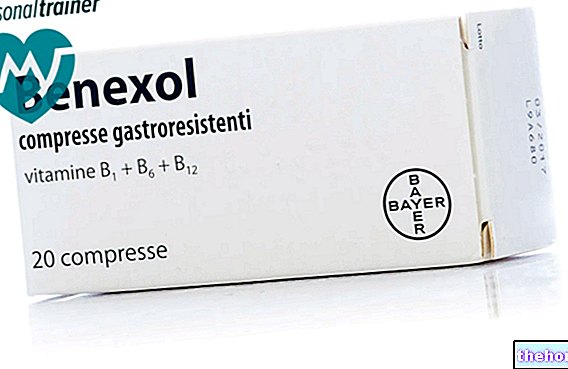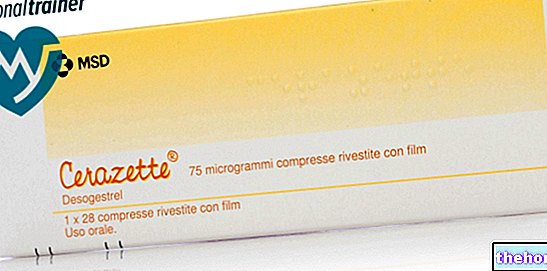Active ingredients: Clotiazepam
RIZEN 5 mg tablets
RIZEN 10 mg tablets
Rizen package inserts are available for pack sizes: - RIZEN 5 mg tablets, RIZEN 10 mg tablets
- RIZEN 10 mg / ml oral drops, solution
Why is Rizen used? What is it for?
Rizen contains the active substance clothiazepam which belongs to a group of medicines called benzodiazepines.
Rizen is used to treat anxiety, tension and related disorders.
This medicine is also indicated for the treatment of insomnia. All benzodiazepines are used only if the problem is severe enough to be disabling or causing serious discomfort to the sufferer.
Contraindications When Rizen should not be used
Do not take Rizen:
- if you are allergic to clothiazepam, other benzodiazepines or thienodiazepines, or any of the other ingredients of this medicine (listed in section 6).
- if you have myasthenia gravis, a condition in which the muscles are very weak
- if you have severe breathing difficulties
- if you have severe liver problems
- if you suffer from a sleep disorder caused by partial or complete blockage of the airways during sleep (obstructive sleep apnea syndrome)
- if you have an eye condition called narrow angle glaucoma, which is characterized by high pressure inside the eye.
Rizen should not be used in children less than 6 years of age.
Precautions for use What you need to know before you take Rizen
Talk to your doctor before using Rizen. The doctor will need to pay particular attention:
- if you have liver, kidney or heart problems as your dose may need to be adjusted;
- if you have a history of alcohol or drug abuse;
- if you suffer from depression or psychiatric disorders;
- if you suffer from epilepsy;
- if you are elderly;
- if you suffer from brain disorders;
- if you have chronic breathing problems.
Other important information
Rizen, taken for several weeks, may become less effective. If you notice that the medicine becomes less effective, please tell your doctor.
The use of medicines such as Rizen can cause physical and psychological dependence. The risk increases with increasing dosage and length of treatment and is greater in patients with a history of alcohol or drug abuse. For this reason, the treatment must be as short as possible.
The dosage of Rizen should be gradually reduced to avoid "withdrawal syndrome", characterized by unpleasant side effects (see section 3, "If you stop taking Rizen").
You may experience amnesia (total or partial memory loss) during treatment with Rizen. To avoid this, it is important that you have 7-8 hours of uninterrupted sleep (see section 4 "Possible side effects").
Effects such as agitation, restlessness, hyperactivity, aggression, irritation, nightmares or hallucinations ("paradoxical psychiatric reaction") may occur. If such effects occur, treatment should be discontinued and you should contact your doctor. Such reactions are more frequent in children and the elderly.
Children and adolescents
Rizen should not be used in children younger than 6 years of age.
In children over 6 years of age, Rizen can only be given after a careful assessment of the need for treatment and the treatment period should be as short as possible.
Interactions Which drugs or foods can change the effect of Rizen
Tell your doctor or pharmacist if you are taking, have recently taken or might take any other medicines, even those not prescribed by a doctor. In particular, tell your doctor if you are taking:
- medicines that depress brain activity such as antipsychotics, hypnotics, anxiolytics / sedatives, antidepressants, analgesics, narcotics, antiepileptics, anesthetics or sedative antihistamines, as Rizen may increase the sedative effect of these medicines
- theophylline (used to treat asthma and lung problems), as it may have an effect on the effectiveness of Rizen.
Rizen and alcohol
Avoid drinking alcohol while you are taking Rizen tablets, as alcohol may increase the sedative effect of Rizen.
Warnings It is important to know that:
Pregnancy, breastfeeding and fertility
If you are pregnant or breast-feeding, think you may be pregnant or are planning to have a baby, ask your doctor for advice before taking this medicine.
Avoid taking Rizen during the first trimester of pregnancy. After this period, you can only take the medicine with caution and only if the expected benefits outweigh the risks.
If you take this medicine during late pregnancy or delivery, your newborn baby may be less active than other babies, have a low body temperature or have difficulty breathing.
If you take this medicine regularly during late pregnancy, your baby may develop withdrawal symptoms after birth.
Rizen passes into breast milk and it is therefore recommended not to breast-feed during treatment.
Driving and using machines
Rizen can cause sedation, memory loss, loss of concentration and decreased muscle function, which can affect the ability to drive and use machines safely. If sleep duration has been insufficient, these effects may be more pronounced. Do not drive or use machines if these affect you.
Rizen 5 mg and 10 mg contain lactose
If you have been told by your doctor that you have an intolerance to some sugars, contact your doctor before taking this medicinal product.
Rizen 5 mg contains Sunset Yellow (E110)
It can cause allergic reactions.
Dose, Method and Time of Administration How to use Rizen: Posology
Always take this medicine exactly as your doctor or pharmacist has told you. If in doubt, consult your doctor or pharmacist.
Adults
The recommended dose is 1 tablet one to three times a day.
Young adults and patients suffering from severe discomfort can take 5 to 30 mg of Rizen per day, according to the doctor's judgment.
In elderly patients and in mild cases the recommended dose is 5 to 15 mg of Rizen per day, according to the doctor's judgment.
To induce sleep the recommended dose is 10 to 20 mg of Rizen in the evening, before going to bed.
In all cases the treatment period should be as short as possible.
Your doctor will adjust your dose and duration of treatment according to your age and condition. Your doctor will need to consider a dose reduction if you have other conditions (see section 2 "Warnings and precautions").
Anxiety, tension and related disorders
The total duration of treatment is generally a maximum of 8-12 weeks, including a period of tapering off the dose.
Insomnia
The duration of treatment is generally from a few days to 2 weeks, up to a maximum of 4 weeks. Treatment will start at the minimum recommended dose and should not exceed the maximum dose.
Use in children
In children, the use of Rizen oral drops is recommended.
If you forget to take Rizen
Do not take a double dose to make up for a forgotten dose.
If you stop taking Rizen
Do not stop taking Rizen without consulting your doctor. Treatment with Rizen should be gradually tapered off (tapered off).
If you stop taking Rizen abruptly, your original symptoms may return stronger than before and you may experience withdrawal syndrome, characterized by headache, body aches, extreme anxiety, tension, restlessness, confusion and irritability. In severe cases, the following may occur: de-realization (altered perception of the external world), depersonalization (altered perception of oneself), hypersensitivity and intolerance to sounds, numbness and tingling of the extremities, hypersensitivity to light, noise and physical contact, hallucinations or seizures epileptics.
If you have any further questions on the use of this medicine, ask your doctor or pharmacist.
Overdose What to do if you have taken too much Rizen
If you or someone else has taken more Rizen tablets than you should, contact your doctor or go to the nearest hospital, taking the pack with you if possible.
Symptoms of overdose vary according to the amount taken, and include feeling lightheaded, mental confusion and lethargy. In severe cases, symptoms may include loss of muscle coordination (ataxia), decreased muscle tone, drop in blood pressure, difficulty breathing, coma (rare) and death (very rare).
Side Effects What are the side effects of Rizen
Like all medicines, this medicine can cause side effects, although not everybody gets them.
If any of the side effects described below occur stop taking Rizen and contact your doctor (these effects occur more easily in children and elderly patients) (see section 2 "Warnings and precautions"):
- agitation
- irritability
- aggression
- delirium
- violent anger
- nightmares
- hallucinations
- personality changes
The frequency of side effects depends on your age, dosage and duration of treatment.
Most frequent side effects at the start of treatment
- headache
- drowsiness and sleepiness upon waking (when the medicine is taken late in the evening)
- confusion
- lethargy (a state of pathological deep sleep)
- loss of muscle coordination (ataxia)
- dizziness
- dry mouth (xerostomia)
- decreased muscle tone
- emotional numbness
- fatigue
Other possible side effects
- Drop in blood pressure (hypotension)
- Fainting (syncope)
- Double vision (diplopia) and visual disturbances
- Confusion (in the elderly)
- Memory disturbances
- Behavioral changes
- Symptoms of paranoia
- Breathing problems (respiratory depression in patients with chronic breathing problems)
- Nausea
- He retched
- Increased appetite
- Alteration of liver function, visible with yellowing of the skin and mucous membranes (jaundice) and alteration of transaminase values
- Allergic reactions of the skin
- Erythema
- Urticaria
- Changes in sexual desire
- Disorders of menstruation and ovulation
- Male breast enlargement (gynecomastia)
- Depression
- Sedation
- Anaphylactic reactions (usually manifesting as swelling of the face, flushing, difficulty in breathing and dizziness)
- Decrease in white blood cells (leukopenia)
The use of medicines such as Rizen can cause physical and psychological dependence. The risk increases with increasing dosage and length of treatment and is greater in patients with a history of alcohol or drug abuse. For this reason, treatment should be as short as possible (see section 2 "Warnings and precautions").
You may experience amnesia (total or partial memory loss) during treatment with Rizen. The risk increases with increasing dose. To avoid this, it is important that you have 7-8 hours of uninterrupted sleep (see section 2 "Warnings and precautions").
Reporting of side effects
If you get any side effects, talk to your doctor or pharmacist. This includes any possible side effects not listed in this leaflet. You can also report side effects directly via the national reporting system http://www.agenziafarmaco.gov.it/responsabili.it By reporting side effects you can help provide more information on the safety of this medicine.
Expiry and Retention
Keep this medicine out of the sight and reach of children.
Do not use this medicine after the expiry date which is stated on the package after EXP :. The expiry date refers to the last day of the month.
Keep this medicine protected from light.
Rizen 10 mg tablets: store at a temperature not exceeding 25 ° C.
Do not throw any medicines via wastewater or household waste. Ask your pharmacist how to throw away medicines you no longer use. This will help protect the environment.
Deadline "> Other information
What Rizen contains
Rizen 5 mg tablets:
- The active ingredient is clotiazepam. One tablet contains 5 mg of clotiazepam.
- The other ingredients are: lactose, corn starch, microgranular cellulose, povidone, magnesium stearate, quinoline yellow (E 104) and sunset yellow (E 110).
Rizen 10 mg tablets:
- The active ingredient is clotiazepam. One tablet contains 10 mg of clotiazepam.
- The other ingredients are: lactose, maize starch, microgranular cellulose, povidone, magnesium stearate, indigo carmine (E 132).
What Rizen looks like and contents of the pack
Rizen 5 mg tablets are available in packs of 40 tablets.
Rizen 10 mg tablets are available in packs of 30 tablets.
Source Package Leaflet: AIFA (Italian Medicines Agency). Content published in January 2016. The information present may not be up-to-date.
To have access to the most up-to-date version, it is advisable to access the AIFA (Italian Medicines Agency) website. Disclaimer and useful information.
01.0 NAME OF THE MEDICINAL PRODUCT -
RIZEN
02.0 QUALITATIVE AND QUANTITATIVE COMPOSITION -
RIZEN 5 mg Tablets
One tablet contains - active ingredient: Clotiazepam 5 mg
RIZEN 10 mg Tablets
One tablet contains - active ingredient: Clotiazepam 10 mg
RIZEN 10 mg / ml Oral Drops, Solution
100 ml of solution contain - active ingredient: Clotiazepam 1 g
Excipients with known effects: the tablets contain lactose;
5mg tablets contain E 100 sunset yellow
For the full list of excipients, see section 6.1
03.0 PHARMACEUTICAL FORM -
Tablets, oral drops, solution.
04.0 CLINICAL INFORMATION -
04.1 Therapeutic indications -
Anxiety, tension and other somatic or psychiatric manifestations associated with anxious syndrome. Insomnia.
Benzodiazepines are only indicated when the disorder is severe, disabling, or makes the subject very uncomfortable.
04.2 Posology and method of administration -
Adults:
Tablets: 1 tablet one to three times a day. The dose must however be individualized and adapted to the severity of the pathological picture according to the doctor's opinion.
Drops:
Adults: 12-15 drops one to three times a day.
Children from 6 years old: 0.2-0.6 mg / kg / day, i.e. 5 to 15 drops per day, divided into 2-3 administrations (5 drops = 2 mg of clotiazepam).
Due to the variability of individual responses, the daily dosage will be adapted to age, to the characteristics of the clinical picture and to the general conditions. In the elderly patient and in mild cases, from 5 to 15 mg / day. In the young and in the cases more serious: from 5 to 30 mg / day, according to the doctor's judgment. Liver or kidney failure may lead to adjustment of the dosage.
As a sleep inducer we recommend 10 or 20 mg in the evening before bedtime.
In the treatment of elderly patients, the posology must be carefully established by the physician who will have to evaluate a possible reduction of the dosages indicated above (see section 4.4. Special warnings and precautions for use).
Treatment should be as short as possible and include a gradual withdrawal period
Anxiety, tension and other somatic or psychiatric manifestations associated with anxiety syndrome
The patient should be re-evaluated regularly and the need for continued treatment should be carefully considered, particularly if the patient is symptom-free. The overall duration of treatment should generally not exceed 8-12 weeks, including a gradual withdrawal period.
In certain cases, extension beyond the maximum treatment period may be necessary, in which case this should not be done without reassessment of the patient's condition.
Insomnia
The duration of treatment generally ranges from a few days to two weeks, up to a maximum of four weeks.
In certain cases, extension beyond the maximum treatment period may be necessary; if so, it should not take place without reassessment of the patient's condition.
Treatment should be started with the lowest recommended dose.
The maximum dose should not be exceeded.
04.3 Contraindications -
Hypersensitivity to benzo / thienodiazepines or to any of the excipients. Myasthenia gravis. Severe respiratory insufficiency. Severe hepatic insufficiency. Obstructive sleep apnea syndrome. Narrow angle glaucoma, symptoms may be aggravated by the anticholinergic effect. Rizen is contraindicated in children under 6 years of age.
04.4 Special warnings and appropriate precautions for use -
Tolerance
Some loss of efficacy to the hypnotic effects of benzodiazepines may develop after repeated use for a few weeks.
Dependence
The use of benzo / thienodiazepines can lead to the development of physical and mental dependence on these drugs. The risk of addiction increases with dose and duration of treatment: it is greater in patients with a history of drug or alcohol abuse.
Once the physical dependence has developed, the abrupt termination of treatment will be accompanied by withdrawal symptoms. These can consist of headache, body aches, extreme anxiety, tension, restlessness, confusion and irritability. In severe cases the following symptoms may occur: derealization, depersonalization, hyperacusis, numbness and tingling of the extremities, hypersensitivity to light, noise and physical contact, hallucinations or seizures.
Rebound insomnia and anxiety: A transient syndrome in which symptoms leading to treatment with benzodiazepines recur in an aggravated form may occur on discontinuation of treatment. It may be accompanied by other reactions, including mood changes, anxiety, restlessness or disturbances As the risk of withdrawal or rebound symptoms is greater after abrupt discontinuation of treatment, a gradual decrease in dosage is suggested.
Duration of treatment
The duration of treatment should be as short as possible (see section 4.2) depending on the indication, but should not exceed four weeks for insomnia and eight to twelve weeks for anxiety, including a gradual withdrawal period. Extension of therapy beyond these periods should not occur without re-evaluation of the clinical situation. It may be helpful to inform the patient when treatment is started that it will be of limited duration and to explain precisely how the dosage should be progressively decreased.
It is also important that the patient is informed of the possibility of rebound phenomena, thus minimizing anxiety about these symptoms should they occur upon discontinuation of the drug.
There are elements to predict whether, being clothiazepam a benzodiazepine with a short duration of action, withdrawal symptoms may become manifest within the dose interval, particularly for high doses.
Amnesia
Benzodiazepines can induce anterograde amnesia. This occurs more often several hours after ingestion of the drug and, therefore, to reduce the risk it should be ensured that patients can have an uninterrupted sleep of 7-8 hours (see section 4.8).
Psychiatric and paradoxical reactions
When benzodiazepines are used it is known that reactions such as restlessness, agitation, irritability, aggression, delirium, anger, nightmares, hallucinations, psychosis, behavioral changes can occur. Should this occur, the use of the medicinal product should be discontinued. These reactions are more frequent in children and the elderly.
When treatment at the maximum recommended dosages fails or ceases to produce the expected benefits, further dose escalation is not recommended due to the risk of increased side effects or addiction.
Specific groups of patients
Treatment should be initiated with caution in epileptic patients.
Elderly patients, patients with organic brain disorders, respiratory failure:
The elderly should take a reduced dose (see section 4.2 posology and method of administration). Likewise, a lower dose is recommended for patients with organic brain disorders or chronic respiratory failure (due to the risk of respiratory depression) or at a very old age.
Kidney failure
An appropriate dosage regimen is recommended in patients with severe renal disorders. In renal insufficiency it is necessary to reduce the dosage.
Hepatic insufficiency
Benzodiazepines are not indicated in patients with severe hepatic insufficiency as they can precipitate encephalopathy. In mild or moderate hepatic insufficiency it is necessary to reduce the dose of clothiazepam. In moderate or mild hepatic insufficiency, it is necessary to reduce the dose of clotiazepam. In the event of onset of hepatic disorders, appropriate measures such as discontinuation of treatment should be instituted.
Heart failure
In patients with cardiac disorders a. appropriate dosage regimen
Children
Rizen should not be used in children under 6 years of age (see section 4.3 "Contraindications").
Benzodiazepines can be administered to children over 6 years of age only after a careful assessment of the need for treatment. The therapy period should be as short as possible. The use of benzodiazepines in children under 6 years of age is reserved for specific, rare indications, following the decision and under the supervision of a specialist (neuropedist, psychiatrist). Children are very sensitive to the effects of benzoadiazepines on the CNS. Incomplete development of metabolic pathways can prevent the formation of inactive metabolites or impair drug metabolism.
Benzodiazepines are not recommended as primary treatment in psychotic disorders.
Benzodiazepines cannot be used alone to treat depression or anxiety associated with depression (they can lead to suicide in these patients).
Benzodiazepines should be used with extreme caution in patients with a history of alcohol or drug abuse.
Important information about some of the ingredients of RIZEN
The tablets contain lactose therefore patients with rare hereditary problems of galactose intolerance, the Lapp lactase deficiency, or glucose-galactose malabsorption should not take this medicine. The 5 mg tablets contain E 100 sunset yellow: may cause allergic reactions.
04.5 Interactions with other medicinal products and other forms of interaction -
Concomitant intake with alcohol should be avoided. The sedative effect may be enhanced when the medicinal product is taken in conjunction with alcohol. This adversely affects the ability to drive or use machines.
Association with CNS depressants: the central depressive effect may be enhanced in cases of concomitant use with antipsychotics (neuroleptics), hypnotics, anxiolytics / sedatives, antidepressants, analgesics, narcotics, antiepileptics, anesthetics and sedative antihistamines. In the case of narcotic analgesics there may be increased euphoria leading to an increase in psychic dependence.
Compounds that inhibit certain liver enzymes (especially cytochrome P450) may increase the activity of benzodiazepines. To a lesser extent, this also applies to benzodiazepines which are metabolized only by conjugation.
The metabolic clearance of clotiazepam is not significantly affected by the concomitant intake of oral contraceptives, cimetidine or isoniazid.
Theophylline is a benzodiazepine antagonist.
04.6 Pregnancy and breastfeeding -
Pregnancy:
An increased risk of birth defects has been reported in numerous studies with drugs of the same therapeutic group, administered during the first trimester of pregnancy. As this type of drug is not generally used as an emergency medicine, the use of Rizen during the first trimester of pregnancy should be avoided. After this period, it should be administered with caution and only if a clear therapeutic effect is expected.
When clotiazepam is prescribed to a woman of childbearing age, she should be advised to contact her doctor if she wishes to become pregnant or if she suspects that she is pregnant, so that the doctor can decide whether to stop treatment.
If, for medical reasons, high doses of clotiazepam are administered at the end of pregnancy or during labor, effects on the newborn such as hypothermia, hypotonia and moderate respiratory depression due to the pharmacological action of the drug may occur.
In addition, infants born to mothers who have taken benzodiazepines chronically during late pregnancy may develop physical dependence and may experience withdrawal symptoms in the postnatal period.
Feeding time:
Since benzodiazepines are excreted in breast milk, their administration is not recommended for breastfeeding mothers.
04.7 Effects on ability to drive and use machines -
Sedation, amnesia, impaired concentration and muscle function can adversely affect the ability to drive and use machines. If sleep duration has been insufficient, the likelihood of impaired alertness may be increased (see section 4.5).
04.8 Undesirable effects -
The undesirable effects of benzodiazeopines derive directly from their pharmacological properties: their frequency increases with age and depends on both the dosage and the duration of treatment.
¹These effects are prevalent at the beginning of therapy.
Amnesia: Anterograde amnesia can also occur at therapeutic dosages, the risk increases at higher dosages and amnesia generally appears after a few hours from taking. Amnesic effects may be associated with behavioral changes (see section 4.4).
Depression: a pre-existing depressive state can be unmasked during the use of benzodiazepines.
Psychiatric and paradoxical reactions
Benzodiazepines or benzodiazepine-like compounds can cause reactions such as: restlessness, agitation, irritability, aggression, delirium, anger, nightmares, hallucinations, psychosis, behavioral changes and other adverse behavioral effects.
These reactions can be very serious. They are more likely in children and the elderly.
Dependence
The use of benzodiazepines (even at therapeutic doses) can lead to the development of physical dependence: discontinuation of therapy may cause rebound or withdrawal phenomena (see section 4.4). Psychic dependence may occur. Abuse of benzodiazepines has been reported.
Sometimes sedation may appear, on an individual and unpredictable basis. This effect, however, is uncommon and generally transient. If necessary, a reduction in dosage can be considered.
Reporting of suspected adverse reactions
Reporting of suspected adverse reactions occurring after authorization of the medicinal product is important as it allows continuous monitoring of the benefit / risk balance of the medicinal product. Healthcare professionals are asked to report any suspected adverse reactions via the national reporting system. "Italian Medicines Agency Website: http://www.agenziafarmaco.gov.it/it/responsabili
04.9 Overdose -
Human experience with clotiazepam overdose is limited.
Symptoms
in less severe cases: drowsiness, confusion, lethargy
in severe cases: ataxia, hypotonia, hypotension, breathing difficulties, rarely coma and very rarely death.
Treatment:
treatment is symptomatic, it is recommended to induce vomiting within one hour (if the patient is conscious) or to undertake gastric lavage with airway protection (if the patient is unconscious) and / or administer activated charcoal (to reduce the "gastric absorption (if no improvement is seen with stomach emptying).
Antidote:
Flumazenil is indicated in case of severe intoxication with coma and / or respiratory failure. The recommended starting IV dose is 0.3 mg. If the required degree of consciousness is not achieved within 60 seconds, further injections may be given until the patient regains consciousness or up to a maximum of 2 mg. Concomitant use of tricyclic drugs or other drugs can cause seizures, as well as ECG abnormalities (such as an increase in QRS or QT interval) are major contraindications for the use of flumazenil.
Intoxication combined with the ingestion of alcohol or other drugs or in the case of pre-existing diseases, requires immediate hospitalization as life could be at risk. The respiratory and cardiovascular functions must therefore be monitored in a unit of resuscitation
05.0 PHARMACOLOGICAL PROPERTIES -
05.1 "Pharmacodynamic properties -
Pharmacotherapeutic group: Anxiolytics, benzodiazepine derivatives
ATC code: N05BA21
Clotiazepam is the progenitor of a new series of anxiolytic products: the Thienodiazepines. Numerous clinical researches conducted internationally have shown that clotiazepam has a high anxiolysis / sedation ratio. In fact, the anxiolytic activity exerted by clotiazepam, at the dosages commonly used, allows to eliminate or reduce the states of tension, anxiety, irritability and related somatizations without causing marked sedation of the patient. The anticonvulsant activity of clotiazepam has been experimentally demonstrated in mice and rats (pentamethylenetetrazole seizure block: oral DE50 0.7 mg / kg rat); seizure blockade by bemegride: oral DE50 0.6 mg / kg mouse).
The muscle relaxant effect of clothiazepam (motor coordination) was less than that of diazepam.
Clotiazepam acts through the selective involvement of defined brain structures such as the hypothalamus and the limbic system, improving the modulation of nerve impulses.
05.2 "Pharmacokinetic properties -
Clotiazepam, administered orally in humans, is rapidly absorbed from the gastrointestinal tract, reaching the blood peak in about 1.5 hours. From various studies carried out it emerges that clotiazepam has a short half-life of 4-6 hours and a volume of distribution of 2.47 L / kg. Furthermore, 25 hours after administration no trace of the product was detected. Studies on the distribution of labeled clotiazepam have made it possible to ascertain that the drug mainly reaches the liver, kidneys and adrenal glands. Repeated administrations for 3 weeks did not show significant increases in drug concentration in the tissues of the organs mentioned. All this attests to the lack of clothiazepam accumulation in prolonged therapy. Clotiazepam has a greater than 99% binding to serum proteins, without a correlation with the trend in serum concentration over time.
Clotiazepam is excreted in both urine and faeces in a 1: 1 ratio. The excretion of the drug occurs mainly as an unchanged molecule since the percentage of metabolites does not exceed 10% in the urine.
05.3 Preclinical safety data -
Animal toxicity tests have shown that clotiazepam is well tolerated.
In fact, the oral LD50 in the rat was> 2000 mg / kg, while in the mouse it was 957 mg / kg in the male and 1011 mg / kg in the female. Furthermore, clotiazepam was neither teratogenic nor mutagenic.
06.0 PHARMACEUTICAL INFORMATION -
06.1 Excipients -
RIZEN 5 mg Tablets: lactose, corn starch, microgranular cellulose, povidone, magnesium stearate, E 104, E 110 sunset yellow.
RIZEN 10 mg Tablets: lactose, corn starch, microgranular cellulose, povidone, magnesium stearate, E 132.
RIZEN 10 mg Oral drops, solution: alcohol, sodium saccharinate, cherry flavor, raspberry flavor, quinoline yellow E 104, macrogol 400.
06.2 Incompatibility "-
There are no known chemical-physical incompatibilities of Clotiazepam towards other compounds.
06.3 Period of validity "-
Tablets: 3 years.
Oral drops, solution: 18 months.
The medicine must be used within 6 months of first opening the bottle; after this period, the residual medicinal product must be discarded.
06.4 Special precautions for storage -
Keep away from light.
Oral drops solution - Store at a temperature not exceeding 25 ° C.
10 mg tablets - Store at a temperature not exceeding 25 ° C.
06.5 Nature of the immediate packaging and contents of the package -
Tablets: Blister in P.V.C. and silk-screened aluminum
RIZEN pack: 40 tablets of 5 mg
RIZEN 10 pack: 30 tablets of 10 mg
Drops: Yellow glass dropper bottle sealed with child safety cap
Packaging: 20 ml bottle
06.6 Instructions for use and handling -
None.
07.0 HOLDER OF THE "MARKETING AUTHORIZATION" -
GRÜNENTHAL ITALIA S.r.l. - Via Carlo Bo, 11 - 20143 Milan
08.0 MARKETING AUTHORIZATION NUMBER -
"RIZEN 5 mg tablets", 40 tablets - A.I.C. n. 025284011
"RIZEN 10 mg tablets", 30 tablets - A.I.C. n. 025284023
"RIZEN 10 mg / ml oral drops, solution", 20 ml bottle - A.I.C. n. 025284035
09.0 DATE OF FIRST AUTHORIZATION OR RENEWAL OF THE AUTHORIZATION -
First registration: September 24, 1984
Renewal: 1 June 2010
10.0 DATE OF REVISION OF THE TEXT -
AIFA determination of 30 September 2015

